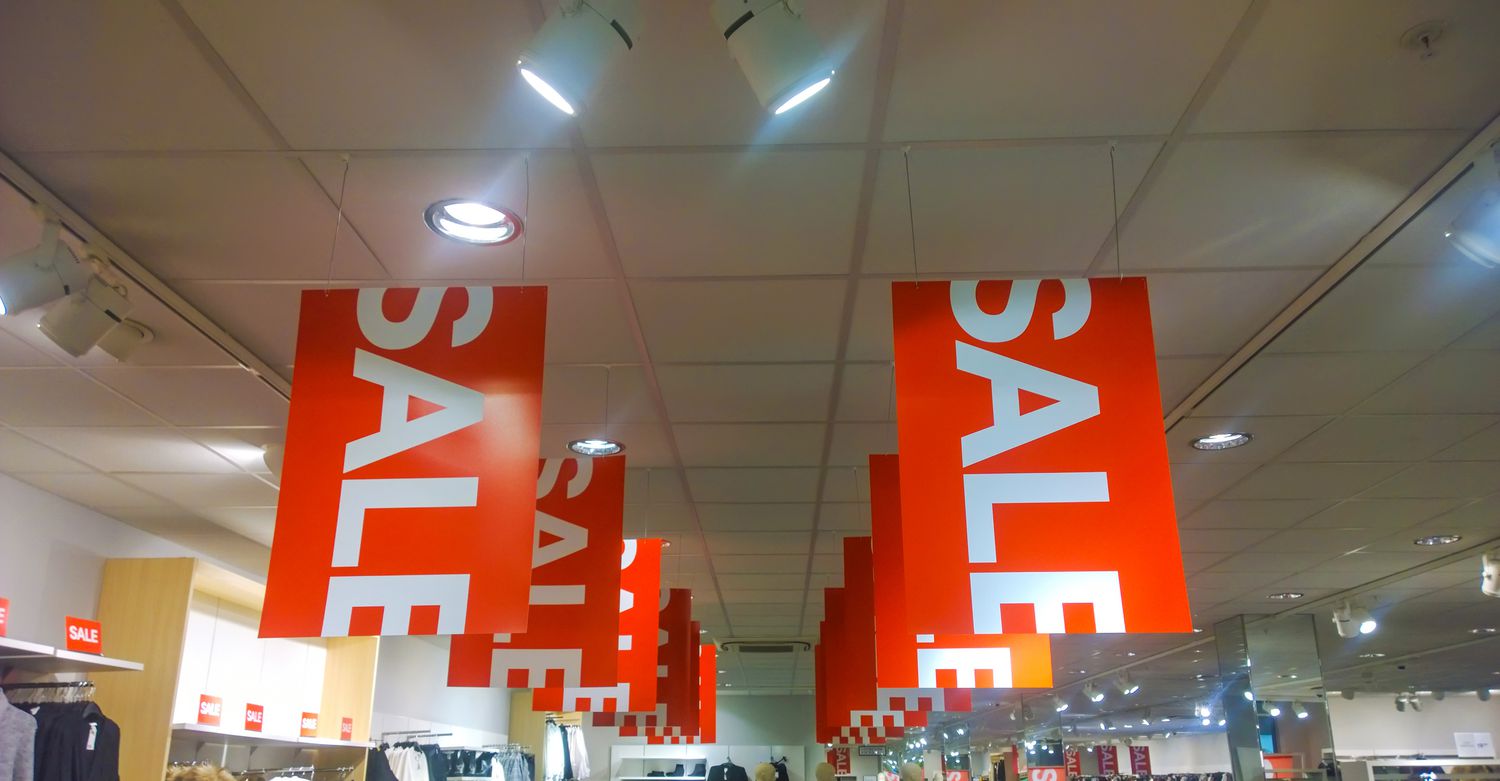Brand Control. How National Brands Curb Closeouts and Online Sales of Excess Inventory.

The internet has revolutionized retail, creating a vast online marketplace selling brand name closeouts, excess inventory, overstock products and abandoned inventory of housewares, home goods, closeout pet products and unwanted inventory of lawn and garden merchandise. While this offers convenience for consumers, it also presents a challenge for nationally recognized brands. These brands invest heavily in maintaining brand image and product quality, and the uncontrolled online sale of excess inventory, closeouts, unwanted merchandise, and abandoned inventory can disrupt this carefully crafted image. Allowing name brand closeouts to be sold at a fraction of their original cost jeopardizes the value that these brands have worked so hard for their names to represent. We will explore the various strategies national brands employ to prevent unauthorized online sales and maintain control over their closeout distribution channels.
Why Brands Care About Online Sales Control
Here are some key reasons why national brands strive to regulate online sales of their closeouts and discontinued products:
- Brand Dilution: Uncontrolled online sales, particularly at deep discounts, can cheapen the perceived value of a brand name closeout. This can damage brand reputation and discourage consumers from paying full price at authorized retailers.
- Quality Control: Brands have strict quality standards for their overstock and discontinued products. Unauthorized sellers may offer excess merchandise that is damaged, counterfeit, or past its expiration date, jeopardizing brand reputation and potentially harming consumers. Sales of closeout products and grown dramatically, especially since the pandemic. Warehouses have shut down, businesses and closed their doors and downsized operations in an effort to reduce the high cost of carrying inventory. This has led to many online sellers going out of business which has created a huge supply of name brand overstock products that are getting liquidated into the market. Inventory liquidations of brand name closeouts disrupt the integrity of the brand, and cheapen the perceived value these companies have spent decades to develop.
- Pricing Consistency: Brands often establish Minimum Advertised Price (MAP) policies for authorized retailers. This means they have to sell a product for a minimum amount in an effort to not have one store undercut pricing of another for the same name brand product. Unauthorized online sales that disregard these policies can disrupt pricing strategies and create confusion for consumers. When it comes to closeouts, the problem is they sell brand name closeouts for less than the regular price. Consumers that don’t know the difference between the regular products and the overstock models getting liquidated can easily be confused thinking it is the same product.
- Channel Conflict: Uncontrolled online sales can create conflict with established distribution channels, including brick-and-mortar retailers and online partners. This can damage relationships with these partners and disrupt the overall sales strategy. It is clear why brand names have a difficult time offloading excess inventory without disrupting their regular distribution channels. Getting rid of brand name closeouts is probably easiest when they can be exported to other countries.
The Arsenal of Control: Strategies Employed by Brands
National brands have a diverse arsenal of strategies at their disposal to curb unauthorized online sales:
- Selective Distribution Agreements: Brands can limit who can sell their overstock products online by entering into selective distribution agreements with authorized retailers. These agreements often include clauses restricting unauthorized online sales. There are so many different closeout websites today that there must be guidelines and guardrails to protect name brand closeouts from being sold anywhere, anytime, by any online seller. Brick and mortar stores may be better options for inventory liquidation of recognized brands because they don’t have such a massively wide audience. Some closeout buyers and overstock inventory liquidators have the ability to export brand name closeouts to small countries with limited populations. This is an attractive option for offloading name brand closeouts and discontinued products.
- Monitoring and Enforcement: Brands employ sophisticated online monitoring tools to track unauthorized sales activity on closeout marketplaces and auction sites. Once identified, brands can issue cease-and-desist letters or pursue legal action against unauthorized sellers. If you are looking for a place to get rid of closeouts without interfering with your everyday distribution channels, consider doing a simple Google search using terms related to the words “selling overstock inventory”. Some examples would be closeouts, closeout inventory buyers, where to offload discontinued products, keen to clear stock from the warehouse, downsizing 3PL warehouse, shutting down operations and going out of business, need to liquidate inventory and make room in warehouse, closeout brokers.
- Online Brand Protection Services: Several closeout companies and inventory liquidators specialize in online brand protection. If you are not familiar with the liquidation process, you can understand it better by searching for how to liquidate inventory on the internet. You will find firms that can monitor online closeout marketplaces, identify unauthorized sellers, and take action on behalf of brands.
- Product Serialization and Track-and-Trace Systems: Serializing products with unique identifiers and implementing track-and-trace systems can help brands identify the origin of unauthorized merchandise and hold distributors accountable for leaks. These products would not be eligible for inventory liquidation unless the identifiers can be removed or changed. Allowing them to be distributed by closeout companies into the overstock marketplace would defeat the purpose. Once these products reach the end of their life cycle, they literally become unwanted inventory that has no place in the distribution channel and it would be best to have these closeouts destroyed.
- E-commerce Platform Partnerships: Brands can collaborate with major e-commerce platforms like Amazon and eBay to develop programs that identify and remove unauthorized listings for their products. This would benefit both the brand names and the major sellers, keeping everyone honest in the fight to not allow online closeout sales of name brand closeouts, excess inventory and nationally recognized names of bulk discontinued products.
Beyond Enforcement: Collaborative Solutions.
While enforcement remains a key strategy, brands are increasingly exploring collaborative solutions with potential unauthorized sellers:
- Authorized Outlet Stores: Some brands establish online outlet stores for discontinued inventory or closeout merchandise. This provides a controlled environment for consumers to access discounted products and unwanted inventory without jeopardizing brand image.
- Manufacturer Refurbished Programs: For certain products like electronics, brands can offer manufacturer-refurbished programs online. This allows them to control the quality and pricing of refurbished closeout products while capturing some value from returned or slightly damaged merchandise. This isn’t the case with non-electronic products like closeout housewares, overstock lawn and garden merchandise, or discontinued inventory of hardware and tools.
- Liquidation Partnerships: Brands can work with reputable liquidation companies and closeout overstock buyers to manage the sale of excess inventory or closeouts. These partnerships ensure proper branding and pricing while minimizing the risk of unauthorized online sales to closeout brokers, closeout websites of online discount deal sites.
The Legal Landscape: Copyright, Trademark, and Grey Market Concerns
The legal landscape surrounding online sales of branded goods is complex. Here are some key considerations:
- Copyright and Trademark Protection: Brands can leverage copyright and trademark laws to prevent the unauthorized sale of their closeout products online. However, enforcing these rights can be challenging in a globalized online marketplace. Getting rid of closeouts of non-branded items is a relatively easy thing to do. Advertise on closeout sales sites, offload excess inventory to companies that specialize in buying discontinued inventory, or simply list then online as promotionally discounted overstock product at low prices. The problem is when the goods are branded and have name recognition.
- Grey Market Goods: The grey market refers to the sale of genuine, brand-name products outside authorized channels. While often legal, it can still pose challenges to brands' control over pricing and distribution. This problem is a challenge for any distributor wanting to protect their brand from copycat names and offering goods to closeout buyers and inventory liquidators, representing them as special opportunity buys that need to be offloaded.
The Future of Brand Control: Embracing Transparency and Collaboration
The digital age presents ongoing challenges for brand control. However, the future lies in embracing transparency and collaboration:
- Transparency in Inventory Management: Brands that transparently communicate with authorized retailers and consumers regarding excess inventory and potential liquidation products can foster trust and minimize unauthorized online sales. It can be challenging to try to control online sellers who want to offer closeouts and discontinued merchandise, when dealing with name brand closeouts. This can lead to legal battles between entities that don’t think they are doing anything wrong.
- Collaboration with Online Marketplaces: Continued collaboration with major online marketplaces is crucial to develop robust systems for identifying and removing unauthorized listings. It is still possible to work with closeout websites, as long as they are willing to not advertise name brands. For example, instead of advertising Farber ware cookware, it would be better to say closeout housewares available. Instead of huffy bikes for sale, you can say overstock inventory of sporting goods for sale. These are examples of how to advertise name brand closeouts and overstock products without using the brand name in the promotion.
National brands must strike a delicate balance between protecting their brand image and controlling online closeout sales channels, while ensuring overstock products availability and price competitiveness. By employing a combination of enforcement strategies, collaborative solutions, and an embrace of transparency, brands can navigate the digital marketplace and maintain control over their products in the online age.
Merchandise USA has been in buying closeouts and distributing overstock merchandise for almost 40 years. We specialize in buying and selling discontinued merchandise, closeouts, overstock products and abandoned inventory. If you have a business outside the U.S., but are keen to offload inventory in the United States, we can help you with the liquidation process. Whether you are shutting down your entire operation, or just downsizing your warehouse and making room for new products, we can help. We buy closeout home accessories, closeout pet products, overstock and inventory liquidations of lawn and garden merchandise. If you are offloading inventory, we are the right partner.



